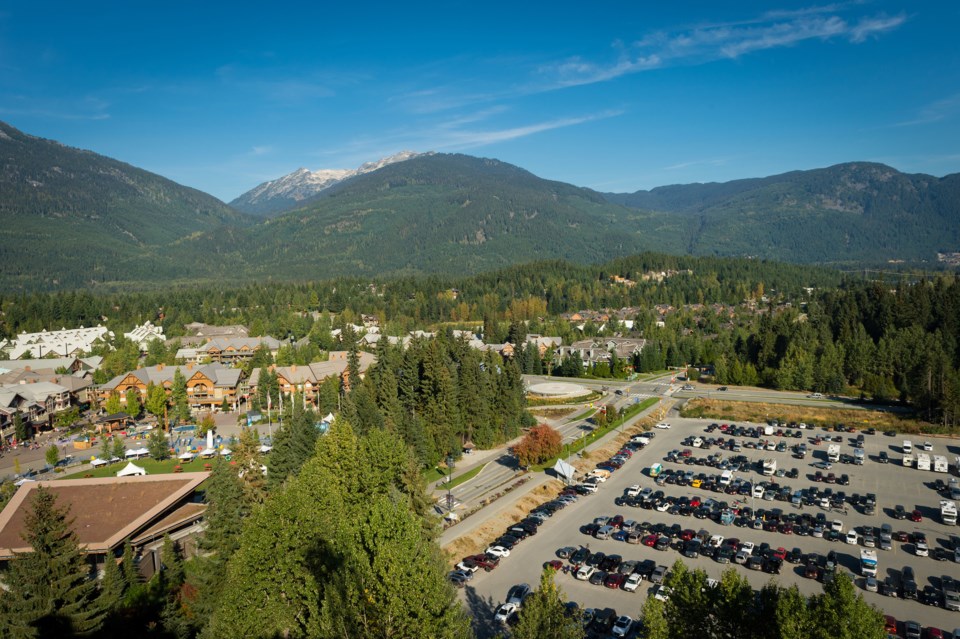Whistler businesses are navigating a mixed landscape in 2025, with steady visitor numbers contrasted by rising operating costs and mounting labour concerns. As summer comes to a close, local business leaders are turning their focus to federal advocacy, staffing stability, and affordability heading into fall and winter.
“We are experiencing a strong summer… there’s lots of positivity in the air,” said Louise Walker, executive director of the Whistler Chamber of Commerce. “But behind the scenes, businesses are still facing just ever-increasing costs of doing business.”
Costs mounting for small businesses
While visitor numbers have held steady, the Chamber says Whistler’s small, locally owned businesses—especially in food, beverage and retail—are bearing the brunt of rising expenses.
“They're really facing increased costs across a whole bunch of factors—rent, labour, tax, tariffs. It’s quite endless,” Walker said. “All these can seem like small increases, but they accumulate to be a big issue.”
These pressures align with broader national trends. According to a report from the Canadian Federation of Independent Businesses, one in five businesses in Canada won’t survive another six months if Canada-U.S. tariffs remain as is. Two-thirds reported they are facing higher expenses, and almost 50 per cent have lower revenues.
While some retail units—such as those in Village Common near the former Village 8 Cinemas—have been leased, others have shuttered.
One of Whistler’s longest-running independent business, Foto Source, closed in July. Big-name shops like Billabong and Eddie Bauer have also closed their doors in the village.
In a previous interview with Pique, Rick Clare, owner of Foto Source, said he decided to close his 40-year-old business rather than paying more for rent.
“I don't want to sign 20 per cent or 30 per cent more for five more years at my age and [level of] responsibility,” he said. “Last couple years, I couldn't go to the Lil’wat Rodeo because I had to work. And it's selfish, but I live here for a reason.”
Strong summer visitation but shifts in spending
Visitation this summer remained steady across key markets, according to Barrett Fisher, president and CEO of Tourism Whistler, and May occupation reached a record high.
“Overnight visitation for May, June, and July was buoyant in all three months, especially from Canada (noting that fewer Canadians have been travelling to the U.S.),” Fisher said in a written response. “Visitation from the U.S. was also very strong in May and June, but showed a decline in July. International business showed some rallying growth in all three months, specifically from Australia, Asian markets, Mexico, and the U.K.”
Despite the foot traffic, Walker noted a cautionary tone among local business owners.
“There’s concern or pessimism about whether there’ll be any improvement in terms of the cost and ease of doing business,” she said.
Labour policy changes spark winter worries
New federal restrictions on immigration and work permits could significantly limit access to international workers this winter—posing a challenge for tourism-reliant towns like Whistler.
“With all the changes announced to the Temporary Foreign Worker Program, our access to international workers is really going to be hit quite hard in the coming year,” Walker said.
She cited several recent policy changes affecting the sector:
- Caps on postgraduate work permits;
- Reductions in spousal open work permits;
- Shortened duration for temporary foreign workers (from two years to one);
- New limits on off-campus work hours for students;
- Reduced quotas in the Provincial Nominee Program.
Whistler’s small year-round population means it relies heavily on international workers to serve millions of annual visitors.
“We really do rely on international workers to support the labour needs of the resort,” Walker said.
Advocacy for affordability and workforce stability
To help address these systemic issues, the Whistler Chamber has ramped up advocacy efforts on multiple levels. Nationally, the Chamber is calling for targeted support for tourism economies, improvements to existing immigration programs, and stronger worker protections.
“We’re a member of the B.C. Chamber of Commerce and the Canadian Chamber of Commerce, and so they support advocacy efforts provincially and federally,” Walker said.
Closer to home, the Chamber is providing support through:
- A dedicated tariff resources page to help businesses navigate U.S.-Canada trade impacts;
- Discounts on payroll, HR, and travel services for members;
- The Whistler Experience program, which offers employees access to locals-only discounts on groceries, activities, and transportation.
As the busy summer fades into the shoulder season, Walker said the Chamber will continue convening local input through its Advocacy in Action series. The next sessions are scheduled for Sept. 19, Oct. 20 and Dec. 15.



